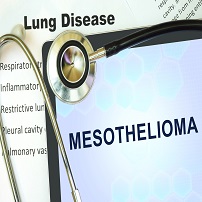 Long-term exposure to asbestos can cause debilitating ailments, like mesothelioma and lung cancer. Many companies that manufactured products containing asbestos went bankrupt due to the exorbitant costs of asbestos-related liabilities. Consequently, companies and their insurers established 524(g) bankruptcy trusts to pay out claimants. Claimants did not need to submit much evidence for approval for the bankruptcy trust to pay their claim.
Long-term exposure to asbestos can cause debilitating ailments, like mesothelioma and lung cancer. Many companies that manufactured products containing asbestos went bankrupt due to the exorbitant costs of asbestos-related liabilities. Consequently, companies and their insurers established 524(g) bankruptcy trusts to pay out claimants. Claimants did not need to submit much evidence for approval for the bankruptcy trust to pay their claim.
While claimants were submitting claims to bankruptcy trusts, they were simultaneously pursuing non-bankrupt companies. It became difficult to ascertain if plaintiffs were recovering for the same exposure twice. Many claimants collect money from trusts outside of the civil court system. Solvent defendants deemed that plaintiff counsel attempted to seek payments from them first, before attempting to recover a second round of payments from the bankruptcy trusts. To review their approved claims criteria, defendants needed to use approximately 60 different bankruptcy trust websites.
Ultimately, asbestos defendants facing verdicts wanted other companies that plaintiffs also considered culpable to share the fault equally, and pushed for more transparency.
KCIC Consulting, which provides tools for mass tort litigation administration, shared the same sentiment. KCIC stood firm behind the notion that solvency or insolvency of a defendant named in asbestos litigation should not prevent them from having to pay their share of a jury award.
KCIC Consulting created a tool to centralize claims information and documents within the infrastructure of the tort system. Data found on various websites is now in one location. In January 2017, KCIC Consulting released its Bankruptcy Evidence Verification (BEV) Tool, to prevent asbestos plaintiffs from recovering payments from bankruptcy trusts for the same asbestos exposure twice.
BEV is a part of KCIC’s Ligado Platform, designed to amalgamate claims data and documents within the structure of the tort system. BEV maintains evidence after asbestos defendants file for bankruptcy that could be advantageous to those defendants.
Specifically, the BEV tool maintains proof of bankruptcy trusts, from which a claimant could potentially collect money. The BEV tool helps solvent defendants prove alternative exposure to asbestos based on the bankrupt companies.
Ultimately helping with data management, BEV streamlines the process to gather data, making it as efficient as possible. Defense counsel no longer need numerous job sites and products for evidence.
Defendants and their counsel have the capability to gather evidence through a number of factors: work history, products, industry, or occupation. This evidence can help defendants and their counsel find other potential exposure sources and assist with preparing questions for depositions.
Bankruptcy trust data is now available in one access point. Consequently, asbestos defendants facing verdicts in Pennsylvania can now ensure that jurors are aware when plaintiffs have also pursued other companies, resulting in proportionate fault distribution.
Even bankrupt companies are held to the established guidelines of evidentiary law and are responsible for their fair share of liability.
If you have contracted a serious illness like mesothelioma, as a result of asbestos or asbestos-related products, please contact a member of our firm.
Philadelphia asbestos lawyers at Brookman, Rosenberg, Brown & Sandler have represented more than 10,000 victims of illnesses caused by exposure to asbestos. Our highly-qualified lawyers have the knowledge and experience necessary to fight for the fair compensation victims deserve. We are centrally located in Philadelphia, Pennsylvania, and we proudly serve clients from the surrounding areas. To set up a free initial consultation, complete our online form or call us at 215-569-4000 today.